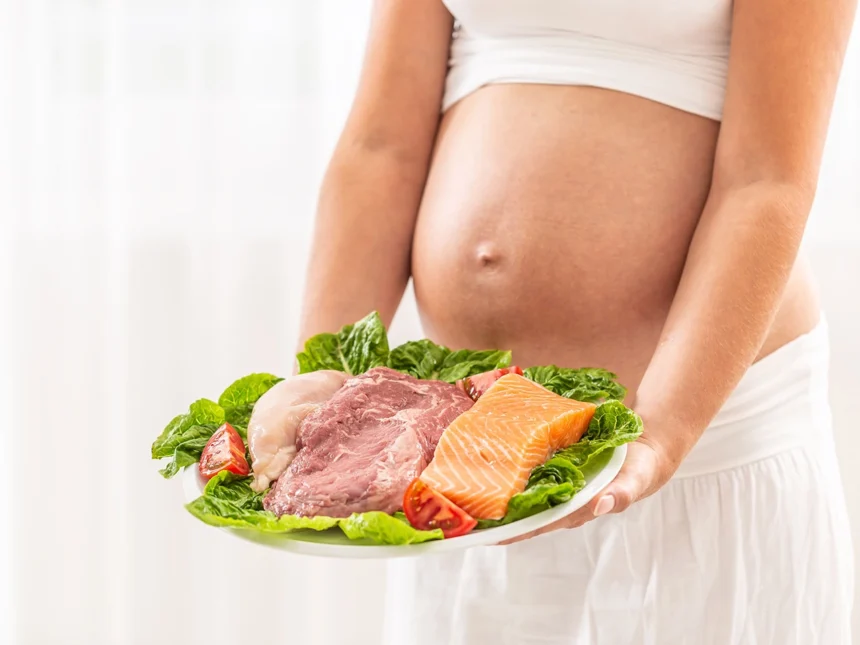Eating or not eating fish during pregnancy can be a tricky subject. On the one hand, we know that fish is a good source of protein and healthy fats as well as other nutrients while on the other hand we also know that many types of fish are not advisable due to their mercury content. So should pregnant women eat fish or not? And why?
Mercury content makes fish during pregnancy a concern
Certain types of fish contain higher amounts of mercury. In general, the older and bigger the fish, the higher is its mercury content likely to be. Mercury is known to be associated with certain birth defects and nervous system problems.
Fish varieties are generally divided into low, high and highest mercury content with low mercury deemed safe to eat and the highest mercury content fish to be avoided altogether.
Lowest mercury or safest fish during pregnancy – Anchovies, butter fish, catfish, clam, domestic crab, crayfish, flounder, haddock, hake, herring, N Atlantic Mackerel, mullet, oysters, ocean perch, plaice, salmon, sardines, scallops, American shad, shrimp, sole, calamari squid, tilapia, freshwater trout, whitefish and whiting belong to the list of fish that you can have about 2, 6 ounce servings a week.

Lower mercury fish that pregnant women should have 6 or fewer times in a month – Striped or black bass, carp, Alaskan cod, white pacific croaker, halibut, lobster, mahi-mahi, monkfish, freshwater perch, sable fish, skate, snapper, sea trout, canned light chunky or skip jack tuna.
Fish to be consumed less than 4 times a month during pregnancy – Chilean Sea Bass, bluefish, grouper, gulf or Spanish mackerel, yellow fin or white albacore tuna.
Fish to be avoided altogether in pregnancy – Marlin, orange roughy, tile fish, swordfish, shark, king mackerel and big eye or ahi tuna are to be avoided through pregnancy.
Other factors to keep in mind about fish during pregnancy
The general guidelines for eating fish in pregnancy are to have about two servings of 6 ounces each, every week, of the kind of fish that is considered safest or which has lowest mercury count. However, there are other things to keep in mind about seafood during pregnancy.
Raw or undercooked fish to be avoided – All seafood should be cooked properly because raw or partly cooked fish during pregnancy can carry harmful virus and bacteria. In particular, partly cooked or uncooked clams and oysters should be avoided. In general, canned fish may be safe for pregnant women.
You know you have cooked the fish properly when it begins to flake and becomes fully opaque. Inserting a fork into the fish while it’s cooking will also tell you whether it is cooked through, because the fork will go in and come out easier when it’s done. You know lobsters, shrimp and scallops are done when they turn fully white. Similarly, oysters and mussels should be cooked to a point that the shells crack open.
Find out about local fish advisories – This is another thing to know about fish during pregnancy, particularly if you’re going to have fish that is caught from local waters. Water pollution could be a concern, and if so the fish there could be contaminated as well.








